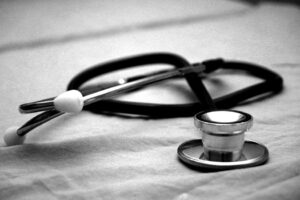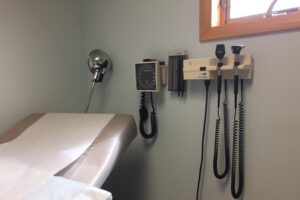Health professionals are held to a higher standard of conduct in their everyday (non-professional) lives outside of the office, clinic or hospital.
I know of many instances of nurses and doctors, psychologists, pharmacists and veterinarians being hauled up before their respective Colleges because of neighbours’ or acquaintances’ complaints. A neighbour (in one instance) had alleged (without proof) that a health professional displayed signs of intoxication while simply walking in the neighbourhood. While such a complaint, if made to the police, would probably not result in a charge let alone an investigation, such a report made to a College of health professionals may result in consequences ranging from a permanent record of the complaint to a Fitness-to-Practice inquiry or even to a Disciplinary Hearing. Alleged misconduct by a health professional occurring outside of the office, clinic or hospital is no longer deemed to be outside of the purview of the respective Colleges.
Furthermore, if such a matter (professional or not) ends up before the Disciplinary Committee of the College, the matter is judged by the “more likely than not” (balance of probabilities) civil standards. In other words, if the offending act’s likelihood of occurrence is deemed to be greater than 50 percent, then the health professional is found guilty. (An accusation tried in a criminal court follows the “beyond a reasonable doubt” standard which sets a higher bar for establishing guilt).
A Disciplinary Hearing is not run like criminal court. The rules of evidence of a criminal court do not apply. The Disciplinary panel may consider evidence, even if that evidence is not specifically presented during the Hearing.
Is all this fair, especially if one’s career and/or reputation is on the line? In my opinion, it is not.
But until such times as fairer rules prevail, health professionals in Recovery should remember that this, like it or not, is the way things are… for the time being at least. Therefore, extra vigilance is required, especially for health professionals in Recovery. Holding oneself up to a higher standard at this time seems to be what is required of addicted, but also of non-addicted, health-care professionals in general.
And again, it is worth emphasizing that the various Colleges keep a permanent record of complaints made, whether immediate action is taken by the College or not, or whether present guilt is established or not. This record is kept for the possible purpose of deciding future guilt in future cases. This is of particular relevance to the health professional with a mental health issue +/- substance dependency since these afflictions may have a higher than average probability of triggering public notice and are more likely to be treated in a disciplinary manner than other medical illnesses.
How to protect oneself: the strategies described in the previous blog are applicable here as well. In particular, attending Recovery meetings, getting (documented) treatment from one’s family doctor, psychologist, psychiatrist, or addictionist promotes one’s health and simultaneously may provide future legal protection. Keep a regular journal. Document adverse encounters. Have a cell phone (with camera) on hand and ready for use. Be a safe, conservative driver and a law-abiding citizen. Remain calm. Be patient. Stay sober.
Remember that a health professional’s conduct inside and outside the office is under scrutiny by the regulatory Colleges.




Leave a Reply